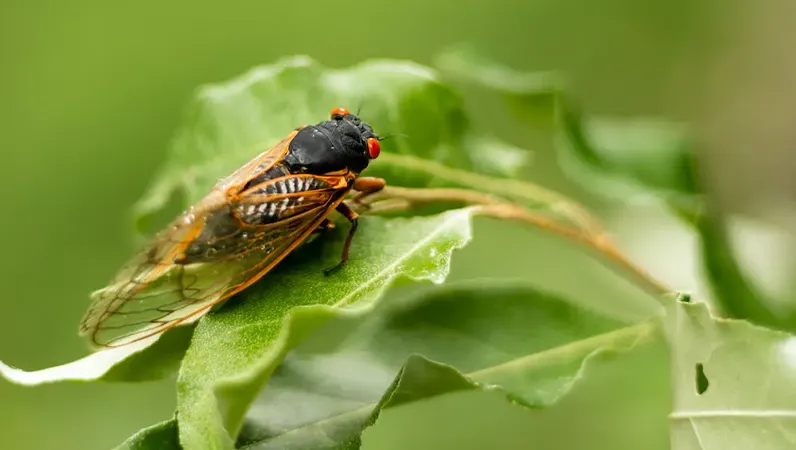In 2025, we face a unique situation: the emergence of Brood XIV cicadas. The cicada swarm is expected to begin in mid-May 2025, when soil temperatures reach approximately 64°F. After 17 years, Brood XIV cicadas will emerge in staggering numbers, filling the air with their distinctive mating calls.
Cicadas are two-inch-long flying insects with large eyes and clear wings. Coming out in the summer months, they feed on tree sap and are attracted to the sound of power tools and lawnmowers. Cicadas are generally harmless to humans and pets, although they may look scary,
But don’t let this year’s cicada emergence disrupt your life. Trust the experts at Xceptional Wildlife Removal to guide you through this unique event and protect your home from potential damage. We’re here to help you navigate this phenomenon with expert guidance and effective pest control solutions so your home remains a peaceful sanctuary.
The Cicada Life Cycle and Emergence
Though their lifespan above ground is relatively short, their presence can be disruptive to your daily life. Most of their existence is spent underground as nymphs, quietly feeding on tree roots. After their emergence, the winged adults will swarm trees and structures, searching for mates and laying eggs in small branches.
While their appearance can be overwhelming, professional exterminators can help you manage this situation.
How to Protect Your Property from Cicada Damage
Although they don’t bite, sting, or pose significant health risks, cicadas can cause damage to your landscaping. Female cicadas lay eggs in small tree branches, leading to broken or weakened limbs, which can be unsightly and potentially dangerous.
While completely eradicating cicadas during their emergence is impossible, there are proactive measures you can implement to protect your property and minimize their impact.
Cicada Control With DIY Tactics
For minor cicada issues, consider these strategies:
- Protect vulnerable young trees and shrubs with protective netting to deter cicada egg-laying.
- Apply insect repellent in outdoor living areas to create a cicada-free zone.
- Postpone planting new fruit trees or shrubs until after cicada season has passed.
- Minimize daytime use of noisy lawn equipment when cicadas are most active to reduce their presence.
- Carefully remove cicadas from surfaces and plants using a gentle spray from a garden hose.
Other Summertime Pests to Consider: Mosquitoes and Ticks
While cicadas may take center stage during summer, mosquitoes and ticks can also wreak havoc. As cicadas die off, their decomposing remains can attract and nourish mosquito and tick populations.
To keep these pests at bay, make sure you do the following:
- Maintain a well-manicured lawn and clear away leaf litter to minimize tick habitats.
- Eliminate mosquito breeding grounds by promptly removing any standing water.
- When outdoors, protect yourself with EPA-approved insect repellents.
Xceptional Wildlife Removal: Your Trusted Partner Against Seasonal Pests
Feeling overwhelmed by the looming cicada season or struggling with other pest problems? Don’t tackle it alone – enlist the expertise of Xceptional Wildlife Removal‘s professionals.
At Xceptional Wildlife Removal, we offer tailored pest control solutions, including specialized treatments for cicadas, mosquitoes, and ticks. Our seasoned team possesses the knowledge and skills to conquer any pest issue, regardless of its size or complexity. After an initial inspection, we’ll craft a personalized treatment plan that aligns with your unique needs and budget.
So take the first step towards a pest-free home by contacting us today for a complimentary service quote!

